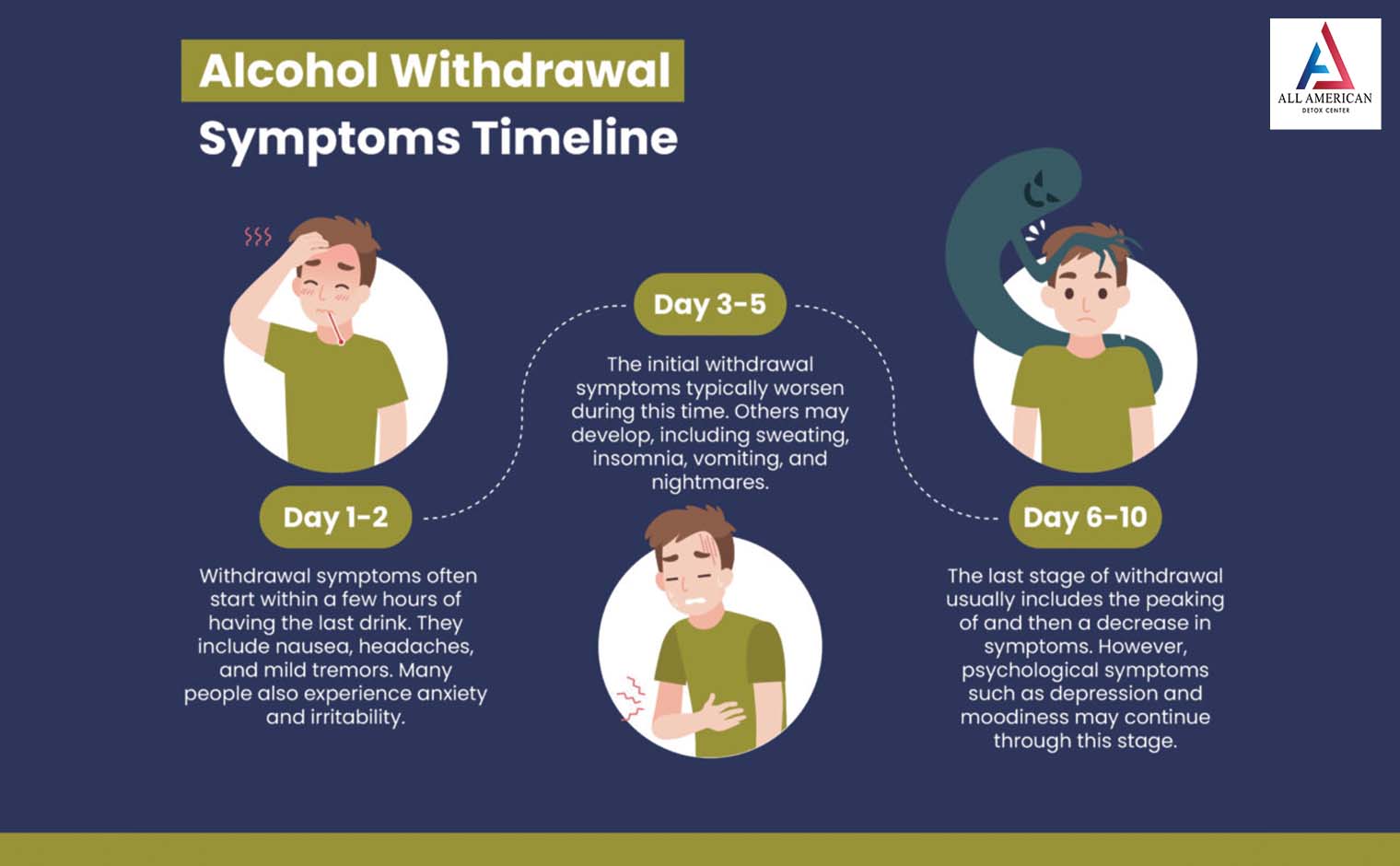Detoxification, the process of removing toxins and harmful substances from the body, can be crucial for achieving better health and overcoming addiction. However, the journey of withdrawal and detox is not without its challenges and dangers.
In this comprehensive article, we will explore the various aspects of withdrawal and detoxification, shedding light on medical detox programs, types of withdrawal, and the potential risks involved.
If you or someone you know is considering a detox, understanding these dangers is vital for making informed decisions and ensuring a safer detoxification process.
What is Detoxification?
In the context of substance abuse, detoxification refers to the specific process of clearing the body of addictive substances after a period of prolonged use. When an individual becomes dependent on drugs or alcohol, their body adapts to the presence of the substance. If the substance is suddenly stopped or significantly reduced, the body may experience withdrawal symptoms as it readjusts to functioning without the drug.
For individuals struggling with severe substance dependence, medical detoxification programs are often recommended. These programs offer a safe and supportive environment supervised by medical professionals. The primary aim of medical detox is to manage withdrawal symptoms effectively and provide the necessary medical attention during the detoxification process.
What is Medical Detox Program?
A medical detox program offers a safe and supportive environment for individuals seeking to rid their bodies of harmful substances. These programs are supervised by medical professionals who specialize in addiction medicine, providing round-the-clock care and attention.
By enrolling in a medical detox program, individuals receive personalized treatment plans tailored to their specific needs, helping them manage withdrawal symptoms and minimize potential risks.
Types of Withdrawal and Their Impact:
Withdrawal symptoms can vary depending on the substance involved and the severity of the addiction. Let’s explore some common types of withdrawal and their potential impacts:
Alcohol Withdrawal:
Alcohol withdrawal can range from mild to severe, with symptoms such as tremors, sweating, nausea, anxiety, and even hallucinations. In severe cases, delirium tremens (DTs) may occur, posing a life-threatening risk that requires immediate medical attention.

Opioid Withdrawal:
Opioid withdrawal can be extremely uncomfortable, leading to symptoms like muscle pain, diarrhoea, vomiting, and intense cravings. While opioid withdrawal is not typically life-threatening, the intense discomfort can drive individuals back to drug use if not properly managed.
Benzodiazepine Withdrawal:
Abruptly stopping benzodiazepines can lead to rebound anxiety, insomnia, and seizures. The severity of withdrawal symptoms depends on the dosage and duration of benzodiazepine use.
Stimulant Withdrawal:
Stimulant withdrawal may cause fatigue, depression, increased appetite, and intense drug cravings. In severe cases, it can lead to suicidal ideation and other mental health challenges.
Marijuana Withdrawal:
Marijuana withdrawal symptoms may include irritability, insomnia, loss of appetite, and mood swings. While not as severe as other substances, it can still pose challenges for some individuals.
Symptoms of Acute Withdrawal from Various Substances
Acute withdrawal refers to the immediate and intense physical and psychological symptoms that occur when an individual suddenly stops using a substance they have been addicted to.
These symptoms can vary depending on the specific substance, and here are some common symptoms for different substances:
Alcohol:
- Nausea and vomiting: Individuals may experience intense feelings of nausea and may vomit during the early stages of alcohol withdrawal.
- Tremors: Shaking or trembling hands and body are common symptoms during alcohol withdrawal.
- Sweating: Profuse sweating is another common symptom experienced by individuals with alcohol withdrawal.
- Anxiety: Feelings of anxiety and restlessness are prevalent during the withdrawal phase.
- Hallucinations: In severe cases, individuals may experience auditory or visual hallucinations, known as alcoholic hallucinosis.
- Delirium Tremens (DTs): DTs are a severe form of alcohol withdrawal, characterized by confusion, disorientation, and severe agitation. This condition requires immediate medical attention as it can be life-threatening.
Opioids:
- Muscle aches and pains: Pain in the muscles and joints is a common symptom during opioid withdrawal.
- Diarrhoea and stomach cramps: Gastrointestinal distress, including diarrhoea and abdominal cramps, is often experienced.
- Nausea and vomiting: Opioid withdrawal can cause persistent feelings of nausea and may lead to vomiting.
- Runny nose and teary eyes: Individuals may have a runny nose and teary eyes during withdrawal.
- Anxiety and depression: Emotional symptoms such as anxiety, depression, and mood swings are common.
- Intense cravings: Cravings for opioids can be overwhelming during withdrawal, which may lead to a strong desire to use the drug again.
Benzodiazepines:
- Rebound anxiety: Stopping benzodiazepines can lead to a surge in anxiety symptoms, known as rebound anxiety.
- Insomnia: Difficulty falling asleep or staying asleep is a common withdrawal symptom.
- Seizures: In some cases, abrupt cessation of benzodiazepines can trigger seizures, especially if the individual was taking high doses.
- Panic attacks: Panic attacks and feelings of panic may occur during withdrawal from benzodiazepines.
- Muscle stiffness and tension: Individuals may experience muscle stiffness and tension during withdrawal.
- Sweating: Profuse sweating is another common symptom experienced by individuals with benzodiazepine withdrawal.
Stimulants:
- Fatigue and exhaustion: Withdrawal from stimulants can cause extreme fatigue and feelings of exhaustion.
- Increased appetite: Individuals may experience a sudden increase in appetite during withdrawal.
- Depression: Feelings of depression and low mood are common during stimulant withdrawal.
- Cravings: Intense cravings for stimulant drugs can be a significant challenge during withdrawal.
- Irritability: Individuals may become easily irritated and have difficulty managing their emotions during withdrawal.
- Disturbed sleep patterns: Sleep disturbances, including insomnia, can occur during stimulant withdrawal.
Marijuana:
- Irritability and mood swings: Individuals may experience irritability and mood swings during marijuana withdrawal.
- Insomnia: Difficulty falling asleep or staying asleep is a common symptom.
- Loss of appetite: Withdrawal from marijuana may lead to decreased appetite and weight loss.
- Physical discomfort: Some individuals may experience mild physical discomfort during withdrawal.
- Anxiety: Feelings of anxiety and restlessness are common during marijuana withdrawal.
- Cravings: Cravings for marijuana can be present during withdrawal.
What are the Symptoms of Protracted Withdrawal?
Protracted withdrawal, also known as post-acute withdrawal syndrome (PAWS), refers to a prolonged period of symptoms that some individuals may experience after the acute phase of withdrawal has passed.
These symptoms can persist for weeks, months, or even longer, and they can vary depending on the substance and the individual.
Here are some common symptoms of protracted withdrawal:
- Anxiety: Persistent feelings of anxiety and nervousness can continue even after the acute withdrawal phase.
- Depression: Individuals may experience ongoing feelings of sadness, hopelessness, and lack of interest in activities they once enjoyed.
- Fatigue: Persistent fatigue and low energy levels are common during protracted withdrawal.
- Irritability: Mood swings and irritability can persist, affecting an individual’s emotional stability.
- Sleep disturbances: Insomnia or disrupted sleep patterns may continue, making it challenging to get restful sleep.
- Cognitive difficulties: Some individuals may experience difficulties with concentration, memory, and cognitive processing.
- Cravings: Intense cravings for the substance may persist during protracted withdrawal, making it challenging to resist the urge to use again.
- Physical symptoms: Lingering physical symptoms, such as muscle aches, headaches, and gastrointestinal distress, may continue.
- Emotional lability: Individuals may experience sudden shifts in emotions, going from happiness to sadness or anger without apparent reason.
- Increased sensitivity to stress: Stressful situations may feel overwhelming, and the individual may struggle to cope with stressors.
- Social isolation: Individuals in protracted withdrawal may withdraw from social interactions and isolate themselves from others.
- Difficulty in managing emotions: Emotional regulation may remain challenging, leading to emotional outbursts or emotional numbing.
- Loss of pleasure: Anhedonia, or the inability to experience pleasure, can persist during protracted withdrawal.
Conclusion:
Understanding the dangers of withdrawal and detoxification is crucial for individuals seeking to break free from the cycle of addiction. Medical detox programs provide a safe and supportive environment for managing withdrawal symptoms and minimizing potential risks.
At AllAmericanDetox Center, we are dedicated to helping individuals take the first step toward a healthier and happier life. If you or someone you know is seeking detoxification treatment, we are here to provide the support, care, and guidance needed for a successful recovery journey.
FAQs
Q: Can I detox from alcohol at home?
A: While some individuals may successfully detox from alcohol at home, it is not recommended, especially for heavy or long-term alcohol users. Alcohol withdrawal can be life-threatening, and medical supervision is essential to ensure safety.
Q: How do I know if a detox program is right for me?
A: If you are struggling with substance abuse and experiencing withdrawal symptoms, seeking professional help is advisable. Consultation with addiction specialists can help determine the most suitable detox program for your needs.
Q: How long does opioid withdrawal last?
A: Opioid withdrawal symptoms typically peak within the first 72 hours and may last for about a week. However, some symptoms, like cravings and mood swings, may persist for more extended periods.
Q: Are medical detox programs expensive?
A: The cost of medical detox programs can vary depending on factors such as location, duration, and amenities. Some insurance plans may cover detoxification, and there are also affordable options available.
Q: Is it possible to detox from multiple substances simultaneously?
A: Detoxing from multiple substances simultaneously, also known as polydrug detox, can be complex and risky. It is best to consult with medical professionals to determine the safest approach.







No comment yet, add your voice below!